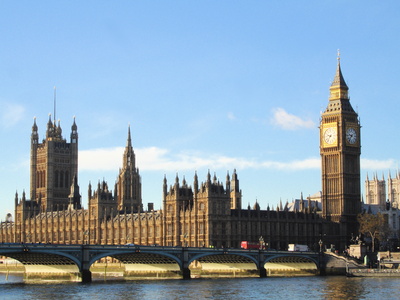Facilitation payments - Written by Barry & Richard on Sunday, November 21, 2010 7:14 - 0 Comments
The Bribery Act guidance: Update on Joint Legal Guidance for Prosecutors
 Last week in an answer to a parliamentary question the UK Attorney General Dominic Grieve QC, MP confirmed that the Joint Legal Guidance for Prosecutors in the Crown Prosecution Service (CPS) and the Serious Fraud Office (SFO) is being prepared.
Last week in an answer to a parliamentary question the UK Attorney General Dominic Grieve QC, MP confirmed that the Joint Legal Guidance for Prosecutors in the Crown Prosecution Service (CPS) and the Serious Fraud Office (SFO) is being prepared.
We are surprised that this guidance has not attracted the same level of attention as the guidance prepared under Section 9 of the Bribery Act. It is equally, if not more, important.
The guidance under Section 9 relates to the guidance about procedures that relevant commercial organisations can put in place to prevent persons associated with them from bribing.
While much has been written about the hope and expectation that the Section 9 guidance will clarify the position taken in relation to corporate hospitality and facilitation payments the draft guidance published did not. This is hardly surprising given the purpose of the guidance mandated by Section 9.
On the other hand the Joint Legal Guidance for Prosecutors in the Crown Prosecution Service (CPS) and the Serious Fraud Office (SFO) promises to be a more interesting affair: As Dominic Grieve QC, MP said on Wednesday in reply to a written question about compliance by the UK National Health Service:
“This guidance will address how the adequate procedures defence should be approached by prosecutors when it is raised. Prosecutors will also take into account the guidance on adequate procedures which will be issued by the Secretary of State for Justice as required by section 9 of the Act.”
In other words it is the flip side of the same coin.
Importantly while the Section 9 guidance will deal with the principles which must be enshrined in organisations’ “Adequate Procedures” the Joint Legal Guidance for Prosecutors will focus on the important question of how prosecutors are to consider them when deciding whether to prosecute.
When the joint legal guidance is published it is hoped it will clarify some of the outstanding questions flowing from the Bribery Act and clear up the approach of the Crown Prosecution Service which we identified in our submission on the Section 9 guidance consultation as a problem in the context of ethical companies seeking to comply with new law. In our response we highlighted:
“3.The borderlines for enforcement among the SFO and the CPS.
Details around this are needed urgently. It can be seen from above that they are extremely important since comfort, from say the SFO, is of little ultimate comfort if the CPS and the police adopt a different view if they are to have responsibility for enforcement too.
The SFO has through its Director and Counsel been extremely pro-active in getting the message across that it wishes to engage in dialogue with corporates striving to implement ethical policies who may discover a problem. The message has consistently been that the SFO will work with the corporate and take a reasonable stance in relation to enforcement.
The attitude of the CPS is an unknown. For reasons that are by no means obvious the Director of Public Prosecutions (DPP) has said little as to the approach of the CPS. This is very unhelpful and needs to be addressed as it serves to undermine the efforts of the SFO and dilutes the approach of seeking to engage and assist responsible corporates attempting to put in place ethical compliance programmes.”


